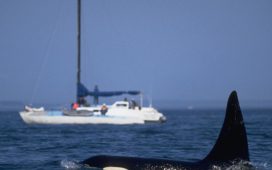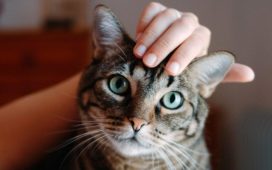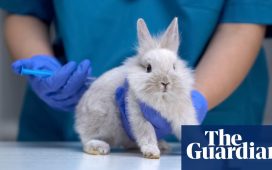
A lion that was on the loose and was killing local livestock near a community in Dundee, Nqutu, in Northern KwaZulu-Natal was shot and killed by a farmer, authorities have confirmed.
“This morning, I received a report from our entity Ezemvelo Wildlife that a lion was killed by a farmer in Dundee, near Nquthu. Although I am still awaiting a full report, I can confirm that this lion has been terrorising the community and killing the livestock since February this year,” Economic Development, Tourism and Environmental Affairs MEC Nomusa Dube-Ncube said on Sunday afternoon.
She said the search for the animal had been “ongoing for months, and killing it has been the last option”.
“Rural communities already under a huge yoke of poverty have had to bear the brunt of this lion which wiped away any possible reserves they have, as the livestock is part of the economy of rural people.”
Dube-Ncube said the seriousness of the matter prompted the department, through Ezemvelo Wildlife, to conduct an investigation into whether it was necessary to issue a permit to “take out the predator”.
“A permit for depredation purposes was issued to the local farmer whose livestock was also attacked by the lion. It is the same farmer who killed the lion [on Sunday morning] as it posed a danger to the community and livestock.”
She said the protection of livestock was a “major priority”.
She added that authorities were guided by the Portfolio Committee on Economic Development, Tourism and Environmental affairs.
“They continue to guide the department on matters of conservation. As the department, we believe that nature conservation is critical in order to provide us with yet another avenue to confront the challenge of unemployment, poverty and inequality created by Covid-19.”
Measures to conserve wildlife
Dube-Ncube said technology to help wildlife was being installed at the Hluhluwe- iMfolozi Park by Ezemvelo staff, together with Peace Parks Foundation and the National Department of Environment Forestry and Fisheries.
“This has been part of a long-term strategy aimed at protecting wild animals.”
She said that, when dealing with poaching, they had decided to invest in Smart Park connectivity and the integration of systems “to ensure early detection and rapid response”.
“One of the key instruments being used is the installation of infrared trap cameras linked directly to the Parks Operational Centre. These cameras using artificial intelligence (AI) to identify people, and send an immediate alert to the Operations Centre who then rapidly alerts and activates the relevant Reaction Units and associated resources.”












